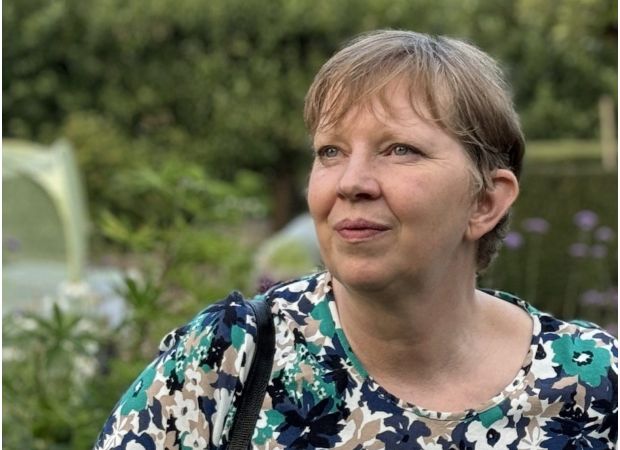A sonographer's confession about mammograms saved my life.
If I had this knowledge, it could have made a big impact.

I was in my fifties when I went for a private ultrasound in 2018. The sonographer, who was performing the ultrasound, made a shocking comment. She said, "You have the densest breasts I have ever seen!" I was taken aback and it changed everything for me. I had been getting annual mammograms since I was 41 due to my family history of breast cancer. Every year, I would receive the all-clear and feel relieved. I had full faith in the system and never thought to question if there was more I needed to know.
However, during a routine shower, I felt an unusual area of thickened breast tissue and decided to get it checked. The doctor offered to fast-track an appointment for two weeks later, but my mother had just gone through her second round of breast cancer treatment and I didn't want to wait. I opted for a private ultrasound instead.
During the ultrasound, the sonographer informed me about my dense breast tissue and how it can make it difficult to detect cancer. She also pointed out some suspicious dark areas that needed further investigation, one of which made her highly suspicious of cancer. It was like trying to find a snowflake in a snowstorm.
I was stunned. How could this be happening when I had a clear mammogram just nine months prior? The following weeks were a blur of hospital visits, imaging, and biopsies. When I finally received the diagnosis, it felt like the ground had fallen away beneath me. I had invasive ductal cancer in both breasts, with the tumor in my right breast being over 5cm. I couldn't believe it. How did I not know?
It turns out, dense breast tissue appears white on mammograms, just like tumors do. Even when my mammogram images were compared with my MRI, the cancer was still undetectable. I was angry when I discovered that my hospital records had noted my dense breasts after every mammogram, but no one ever informed me.
The treatment that followed was tough. I underwent several surgeries, including a double mastectomy, and exhausting chemotherapy that left me with permanent nerve damage in my toes and feet. It was one of the hardest times of my life, compounded by the fact that I believe I could have avoided such extreme treatment if I had known about my breast density sooner.
CoppaFeel! has offered a simple guide on how to check your own chest for signs of breast cancer. It's essential to look at your breasts, feel for any changes, and notice any discharge or rashes on the nipples. What's scary is that I'm not alone in this. It's estimated that 40% of women over 40 have dense breasts, and the denser the breast, the higher the risk. However, research has found that 86% of UK women do not know their breast density, and two-thirds are unaware of how it affects breast cancer screening.
It's shocking that breast density has been known to be a finding on mammograms since the 70s, but women are still not being informed about it. One hospital even told me that they don't disclose this information to women because it may cause anxiety or unnecessary tests. But how can we make informed choices if we don't have all the knowledge? It shouldn't be a postcode lottery. We should all be given the same information to make informed decisions about our health.
After my diagnosis, I received excellent treatment, and I still fully support the NHS. However, changes need to be made. In America, there's a rule that women must be informed of their breast density after a mammogram. We need something similar here. I feel lucky that I found my cancer when I did, but it shouldn't come down to luck. We need more effective screening methods for women with dense breasts and better communication from our healthcare providers.
That's why I have become an advocate for breast density awareness. I want to inform women about the potential risks and how it can affect mammograms' sensitivity to detect tumors. I have been an ambassador for Breast Density Matters UK since 2018 and share my experiences on social media. If you're a woman reading this, I urge you to ask about your breast density at your next mammogram. And remember, dense breast tissue can't be felt, so attend all your screening appointments and regularly check your breasts for any changes. Be informed, proactive, and listen to your body. It could save your life.






